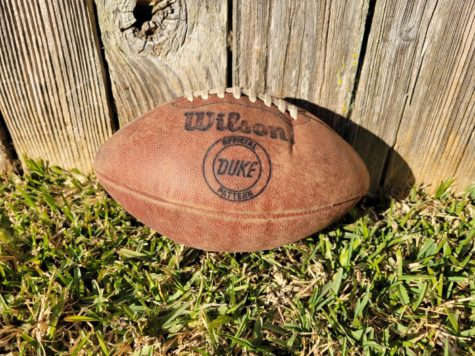With Football Comes More Than Just a Winning Game
A recent PSA was published to advocate the risks of putting your kids in tackle football before they are 14.
No. 99 Jack Lovelace (12) keeping Brazoswood’s defensive line away from his teamates to give the players a pathway to the end zone.
October 25, 2019
The Concussion Legacy Foundation wants to warn parents about the dangers and long-term effects of putting their children in tackle football at a young age.
Their newest campaign, “Tackle Can Wait”, advocates the reasons why parents shouldn’t put their kids in tackle football until they are 14 years old: to reduce their risk of developing chronic traumatic encephalopathy. The campaign was led by two daughters whose fathers passed away after being a victim of CTE.
…the severity of CTE is based off the years one has played football, rather than how many concussions one has had.
Studies produced by Chris Nowinski and Boston University show the severity of CTE is based off the years one has played football, rather than how many concussions one has had.
The studies further state, “After studying the brains of more than 260 professional and amateur deceased football players, Boston University researchers concluded that the risk of CTE doubles for every 2.6 years of play.”
Nowinski uses the example of comparing tackle football to smoking to explain the long-term dangers and how it can be prevented: “If age restrictions on cigarettes can prevent lung cancer in young people, Nowinski thinks similar rules might cut kids’ risk of CTE by as much as half.”
Research has shown kids bodies recover more slowly than adults because they aren’t fully developed, and their bodies aren’t built to survive the excess amount of body crushing in football at such a young age. The initial effect of CTE can take years to develop, and symptoms don’t start to show until you are an adult.
“The long-term effects include memory loss, confusion, aggression, impaired judgment and eventually dementia,” affirms Boston University.
Over time, countless studies have been conducted to determine a way to cure this disease, but there is no cure; it can only be diagnosed through an autopsy. While a cure doesn’t exist, there is a way to prevent it: keep your kids out of football until they are developed, whether that is the age of 14 or above.














